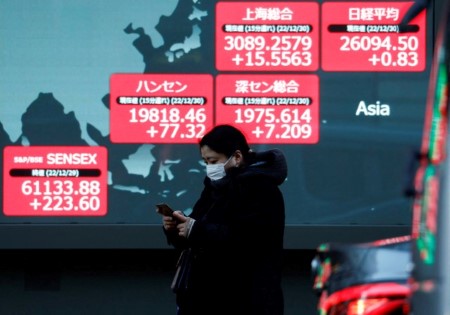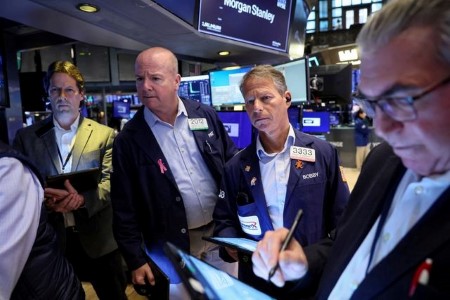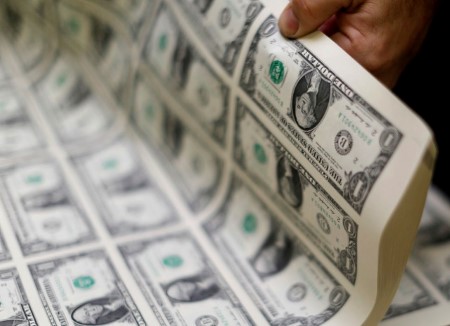May 4 (Reuters) – Foreigners turned net buyers of Asian stocks in April, bolstered by rising expectations the US Federal Reserve will pause its aggressive tightening cycle, and by other factors such as a weaker dollar and strong first-quarter company earnings.
Data from stock exchanges in India, Indonesia, the Philippines, South Korea, Taiwan, Thailand, and Vietnam showed foreigners purchased a net USD 872 million of equities in April – the biggest monthly buying since January.
Bets on more tightening by the Fed have waned recently as the failure of three US regional banks stoked concerns of a recession, while higher interest rates have increased borrowing costs for businesses and consumers.
The Fed raised interest rates by a quarter of a percentage point on Wednesday as expected and signaled it may pause further increases, giving officials time to assess the fallout from recent bank failures and inflation trends.
Chetan Seth, an equity strategist at Nomura, said any weakness in Asian stocks due to US recession concerns will be an opportunity for investors to raise exposure to the region due to supportive factors such as China’s recovery, an expected bottoming out of the tech sector downturn and a strong 2024 earnings recovery.
According to Refinitiv data, Asian companies have beaten net income expectations by 3% in the March quarter.
Indian equities received a net USD 1.42 billion worth of foreign inflows, the biggest since November 2022, thanks to a rally in local shares.
Indian shares were the best performers in the region last month, with Nifty 50 marching 4.1% in its biggest monthly rise since November 2022.
Foreigners also purchased Indonesian, South Korean, and Philippine equities of USD 830 million, USD 616 million, and USD 34 million, respectively.
Meanwhile, Taiwan saw USD 1.73 billion worth of net selling, and Thai equities saw outflows of USD 231 million.
Yeap Jun Rong, a strategist at IG, said the US dollar staying near a one-year low was also supportive of EM Asia equities.
The greenback fell 0.94% in a second straight month of decline against a basket of major world currencies in April as expectations of further Fed rate hikes eased.
(Reporting by Gaurav Dogra and Patturaja Murugaboopathy in Bengaluru; Editing by Kim Coghill)







 DOWNLOAD
DOWNLOAD







